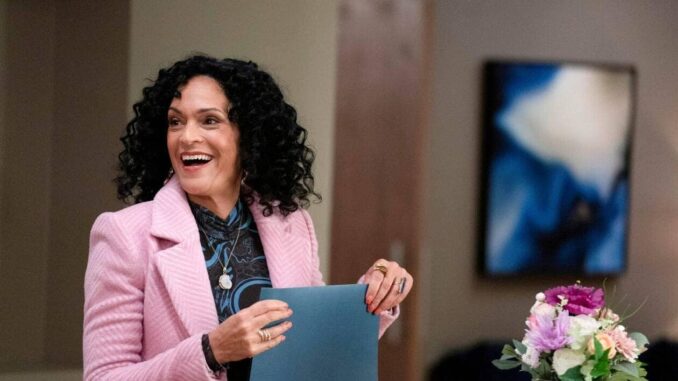
The Unseen Gavel: Why CBS Pulled the Plug on "So Help Me Todd"
The news dropped like a lead gavel on April 18, 2024, sending ripples of dismay through a dedicated, if niche, fanbase: CBS was canceling So Help Me Todd after two seasons. For those who reveled in the quirky, intergenerational antics of attorney Margaret Wright (Marcia Gay Harden) and her charmingly chaotic private investigator son Todd (Skylar Astin), it felt like an abrupt and underserved verdict. The show, a legal dramedy with a distinct familial heart, had carved out a unique space on the network, offering a lighter, more whimsical counterpoint to CBS's traditional procedural fare. Yet, despite its charm and critical appreciation, So Help Me Todd ultimately succumbed to the unforgiving arithmetic of network television, a complex equation where viewership, cost, and competitive strategy hold sway.
At the heart of any network cancellation lies the cold, hard reality of the Nielsen ratings. While So Help Me Todd enjoyed a relatively stable performance, often benefiting from its strong lead-in from the highly popular Ghosts, its viewership numbers, while respectable, were rarely spectacular. In the cutthroat arena of prime-time television, "respectable" often isn't enough to secure a future, especially for a show that isn't a breakout hit or a tentpole franchise. In an era of fragmenting audiences and the exodus to streaming, broadcast networks are under immense pressure to maximize every minute of airtime. Shows that consistently underperform compared to their lead-ins, or that fail to significantly grow their audience over time, become vulnerable. So Help Me Todd, while it boasted a loyal following, didn't consistently demonstrate the kind of audience growth or absolute numbers that would make it indispensable to CBS's lineup, particularly when compared to the network's powerhouse lineup of established procedurals like NCIS or FBI.
Beyond the raw viewership numbers lies the equally crucial factor of production cost. Television shows, especially those with ensemble casts and location shoots (even if simulated), are incredibly expensive to produce. As a show progresses through seasons, actor salaries typically increase, production costs can escalate, and the overall budget balloons. Networks constantly engage in a rigorous cost-benefit analysis: Is the viewership ROI (Return on Investment) worth the increasingly significant financial outlay? For a network like CBS, which aims for broad appeal and a high volume of reliable content, So Help Me Todd, with its more specialized appeal and perhaps higher per-episode cost relative to its viewership, might have simply become too expensive to justify. The decision often comes down to allocating resources to shows that promise a greater return, whether through larger audiences, syndication potential, or broader demographic appeal.
Finally, the cancellation of So Help Me Todd can be viewed through the lens of network strategy and the relentless cycle of pilot development. Broadcast television is a zero-sum game when it comes to time slots. Every year, networks develop a slew of new pilots, hoping to discover the next big hit. To make room for these potential breakout stars, something has to go. Even if a show is performing adequately, it can become a sacrificial lamb if the network believes a new pilot has higher potential, or if they need to adjust their overall brand image. CBS, known for its robust lineup of procedurals and multi-cam comedies, may have simply decided that So Help Me Todd, with its unique blend of light drama and family eccentricity, didn't align as seamlessly with its long-term strategic vision, or that another new series could fill its time slot more effectively. The decision is rarely personal; it's a cold, calculated move in the grand chess game of network programming.
In the end, the cancellation of So Help Me Todd is a familiar story in the volatile landscape of television. It's a reminder that even shows with undeniable charm, talented casts, and dedicated fanbases are not immune to the harsh realities of the industry. The unseen gavel of ratings, production costs, and strategic maneuvering ultimately sealed its fate, leaving fans to mourn the premature departure of a show that, for two delightful seasons, offered a refreshing and endearing escape. While the courtroom doors may have closed on Margaret and Todd Wright, their brief, bright run serves as a poignant illustration of the delicate balance between creative vision and commercial viability in the world of network television.
